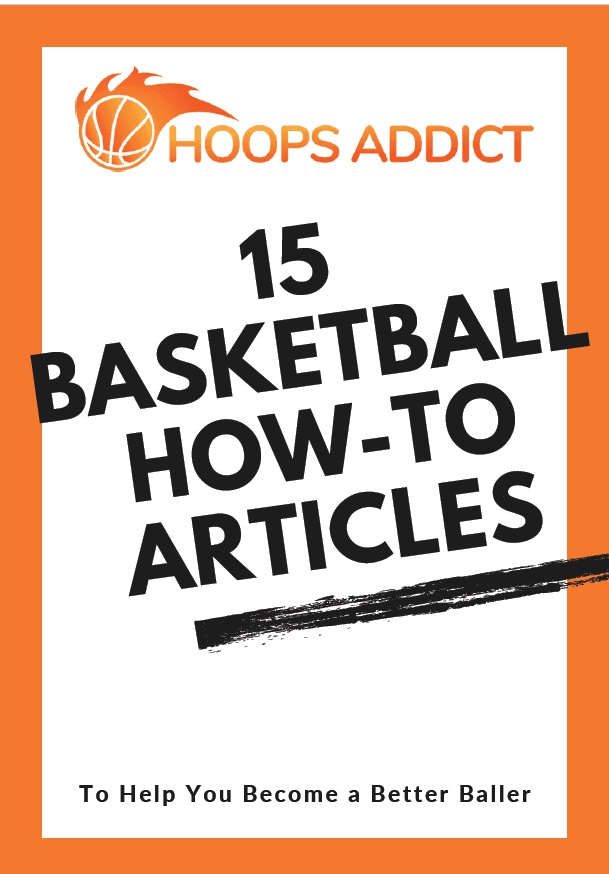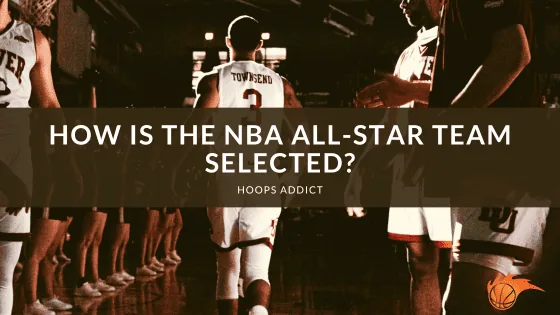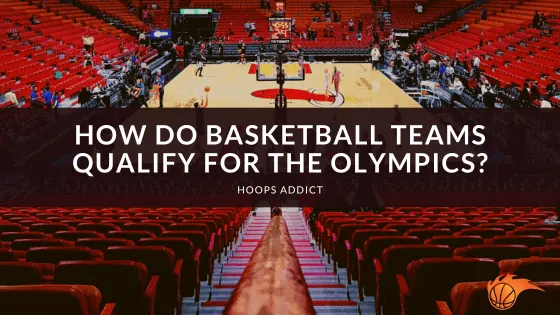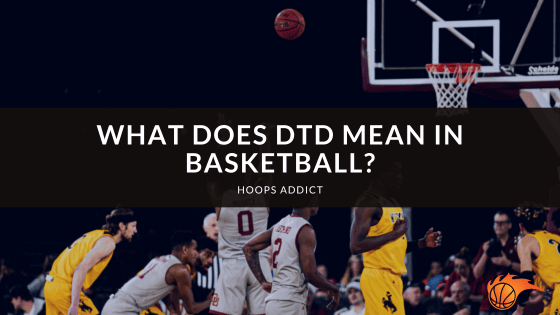Saying that every guy in the league dreams of becoming an NBA Regular Season Most Valuable Player (MVP) is as accurate of a statement as it could be.
Through the years, the NBA has seen some of the most legendary MVP performances that mankind has ever seen. We’ve also had our fair share of controversial past MVP winners that still rile up the basketball community today. This is why within the illustrious list of MVPs, there is an even more elite circle of names.
There’s one thing that separates legendary MVPs from the rest of the pack: legacy.
 The 10 Greatest NBA MVPs
The 10 Greatest NBA MVPs
The NBA MVP award has been given out a total of 67 times. However, only 35 players have received the award because 15 of them have won the coveted trophy multiple times. Those 15 players have combined for 47 MVPs.
Legacy or impact separates legendary MVPs from — just — MVPs. These 10 players accomplished astounding feats and, with their play, even changed the game:
1. Allen Iverson (2001)
It is no secret that in basketball, height is might — or at least that was the common assumption before Allen Iverson won the MVP in 2001. At 6 feet flat, AI is the smallest MVP in history and reinvented what it means to dominate the game. Iverson entered a physical league dominated by the likes of Michael Jordan, Shaquille O’Neal, David Robinson, Hakeem, and more. As a perennial small point guard, Iverson had to be crafty, smart, feisty, and dauntless to succeed — and succeed he did.
In his MVP season, AI was unstoppable and showed everyone what a spitfire guard at his peak could do. Outside of the MVP, Iverson also won his 2nd scoring title and steered the Philadelphia 76ers to the Finals. The 2001 NBA Finals was also the stuff of legends as Iverson would eventually fall to the would-be dynasty of Shaq and Kobe.
AI would end up revolutionizing the NBA outside the court as well. His dreadlocks, tattoos, and the way he controlled his narrative as a player opened the eyes of the NBA. He brought culture into the game and made the league more accepting and open to liberated players.
2. Shaquille O’Neal (2000)
Prime Shaq was many things but there is only one word that can truly describe him: dominance. He bullied his opponents to the point of humiliation, he broke backboards, and he was a generational physical specimen at 7’ 1” and 325 lbs. Shaq’s domain was the low post and it was always a sight to see even the most legendary big men of the league struggle to contain him.
The 1999-2000 NBA season saw Shaq average 29.7 points, 13.6 rebounds, and 3.0 blocks en route to a scoring title and the regular season MVP. That season, Shaq also won the Finals MVP award together with his first ring.
Shaq’s undeniable dominance impacted the game very literally. Rule changes had to be made to contain him. Because of him, NBA teams were allowed to use a zone defense to contain dominant centers under the paint. Outside of the court, the NBA now requires teams to have a spare hydraulic hoop every game.
3. Kobe Bryant (2008)
Kobe Bryant needs no introduction. He was one of the biggest competitors the game has ever seen and inspired a generation of ballers.
When he was younger, Kobe was a freak athlete with elite footwork who scored on everyone with his athleticism and talent. However, through the years, Kobe evolved into a more patient, surgical, and finesse predator who controlled the game with his gravity. In the 2007-2008 season, this evolved version of Kobe would average 28.3 PPG, 6.3 RPG, 5.4 APG, and 1.8 SPG en route to his first regular-season MVP and a Finals appearance.
Kobe Bryant may not have changed the rules directly, but he undeniably impacted how people see the game even today. His Mamba Mentality continues to inspire today’s players while his passion for pushing the game of women’s basketball forward is nothing short of amazing.
4. Magic Johnson (1987, 1989, 1990)
Another legend for the purple and gold makes it to our list — and rightfully so. Earvin “Magic” Johnson, is widely recognized as the greatest point guard in NBA history. He was a genius who controlled the game with his flashy passes, efficiency, and high-IQ schemes. Even with a relatively short 13-year career, Magic achieved virtually everything that an NBA player could.
Magic won the MVP award three times — in ‘87, ‘89, and ‘90. His first MVP in the 1986-1987 season saw him average a double-double of 23.9 PPG and 12.2 APG on top of 6.3 RPG and 1.7 SPG. Apart from winning the MVP that season, he also led the league in assists and was named Finals MVP, All-NBA First Team, and NBA champion.
At 6’9”, Magic was the perennial tall point guard. He handled the ball with care, played with flair, and made everyone around him better. Magic’s career would change the perception of point guards and inspire taller players to improve their playmaking skills.
5. Wilt Chamberlain (1960, 1966, 1967, 1968)
Wilt deserves his category simply because of the eye-popping statistics and ridiculous records he has under his belt. The 60s was an era of legendary figures but Wilt was arguably the biggest of them all. Wilt towered over his opponents at 7 ‘1” and was a freak athlete who outran, outmuscled, and out-jumped everyone in the league.
The MVP award that Wilt won in 1960 is widely considered the most remarkable one in his career. He averaged 37.6 points, 27.0 rebounds, and 2.3 assists — just one of his eye-popping statistics. But what makes this more mind-blowing is the fact that this was also his rookie year in the league.
Shaq may have triggered rule changes but Wilt changed the backbone of the game with the adjustments the league made to accommodate him. This includes the following:
- Changing goaltending rules on both ends of the floor
- Widening the lane from 12 feet to 16 feet
- Prohibiting players from crossing the free throw line during free throws
- Prohibiting players from doing a direct lob from the baseline during inbound
6. Russell Westbrook (2017)
Russell Westbrook, Mr. Triple-Double himself, is a machine on the court who gives everything on the floor and bends the pace of the game like nobody else in the league. Whenever he’s on the floor, defenses scramble to block driving lanes and cut passing lanes because of his elite finishing and passing.
His MVP year would go down in history books as one of the most unreal individual performances. In 2017, Westbrook made headlines as the first player to average a triple-double since Oscar Robertson. He averaged a staggering 31.6 PPG, 10.7 RPG, and 10.4 APG, on top of 1.6 SPG. Westbrook was also the scoring champion that year and set the record for the most triple-doubles in a season with 42.
When all is said and done, Russell Westbrook would probably go down as one of if not the most athletic point guards the league has ever seen. Top rookies like Victor Wembenyama and Scoot Henderson all declared Westbrook as their idol — a testament to the legacy Westbrook has set for the generations to come.
7. Kareem Abdul-Jabbar (1971, 1972, 1974, 1976, 1977, 1980)
We cannot talk about MVPs without mentioning the great Kareem Abdul-Jabbar. His presence in the paint dictated the outcome of every game he played in and he was one of the most gifted scorers the league has ever had.
The 70s were Kareem’s — and nobody came close. He won the MVP award a record six times, but Kareem’s 1971 season would probably be the most remarkable one. He averaged 31.7 points, 16.0 rebounds and 3.3 assists. He also won the championship with the Bucks that year and was crowned the Finals MVP — all in his 2nd year in the league.
Kareem held the all-time scoring record for 39 years and stood tall against challenges from other greats. His efficient play has and will inspire generations of big men. However, Kareem’s legacy outside of the court championing African-American civil rights is unmatched.
8. Lebron James (2009, 2010, 2012, 2013)
Nobody has ever seen a player as complete as LeBron James — from the moment he entered the league and probably until the moment he finally calls it a day in the NBA. Words cannot simply describe how LeBron is as a player because he has already created his brand of greatness and dominance for 20 years and counting. LeBron has been part of the MVP conversation for more than two decades now and that should not be taken lightly.
The 2011-2012 season was arguably LeBron’s best MVP year. In the 2012-2013 season, LeBron averaged 27.1 PPG, 7.9 RPG, 6.2 APG, 1.9 SPG, and almost a block per game. This was the year when everyone saw LeBron take on every game with hungry eyes.
It’s not wrong to say that LeBron changed the league. Quantitatively, his records, championships, and numbers will forever be etched in history. However, LeBron’s legacy cannot be contained in a piece of paper because the last 20 years wouldn’t have been as good as they were without him.
9. Steph Curry (2015, 2016)
Wardell Stephen Curry II is the greatest shooter of all time — nobody in their right mind would go against this take. Steph’s 2014-2015 MVP run was magical, but nobody can contest that the season after that was the best year of his career.
In 2016, Steph Curry became the first unanimous MVP in NBA history. We’ve been throwing names like LeBron James, Wilt Chamberlain, and Kobe Bryant in this article but none of these GOATs won the MVP the way Steph Curry did. He averaged 30.1 points with 5.1 3PM, 6.7 assists, and 5.4 rebounds. The Warriors only lost 9 games that season and so all 131 MVP ballots had one name in number one.
Steph Curry changed the league — again, nobody in their right mind would go against this take. Curry challenged the formula of winning and forever changed the role of shooters in the league. The NBA and the whole world are now shooting more threes than ever and there’s only one man to attribute this to.
10. Michael Jordan (1988, 1991, 1992, 1996, 1998)
And of course, His Airness — arguably the greatest basketball player of all time. Peak Michael Jordan was the stuff of legends because of how simply unguardable and unhinged he was as a player. His competitive drive, paired with his generational talent for basketball, won him everything.
Jordan won 5 MVPs in a span of 10 years — two years of which he was “retired” from the league. He was everywhere in the 90s, winning six rings to pair with six Finals MVPs and 4 of his 5 regular season MVPs. In the 1995-1996 season, Michael Jordan cemented his place as the GOAT with his 4th MVP, averaging 30.4 points, 6.6 rebounds, and 4.3 assists to lead the 72-10 Bulls.
He has been fully retired for more than 20 years now, and yet he is still the benchmark of NBA success and dominance. He triggered the globalization of basketball and propelled the NBA to become the premier basketball league in the world.
 The Impact of NBA MVPs in the Game of Basketball
The Impact of NBA MVPs in the Game of Basketball
Every year, the MVP is chosen by more than a hundred basketball experts handpicked by the NBA. The player with the most points after the panel has voted gets the award. Of course, experts have different criteria for choosing an MVP — some would put team success in the picture, while some are more stats-based.
Consequently, these NBA MVPs impact the league with their superb play. Once you’re an MVP, opposing teams automatically have their eyes set on you — creating specialized defensive schemes, adjusting their line-ups, and drafting players that can counter you. This slowly changes how games are played in the league. Think of how teams have to play with pace once Westbrook is on the floor or how teams field taller lineups to battle Allen Iverson.
However, some MVPs exceed expectations even for MVPs. Because of this, these players don’t just change games, they change seasons, and even change generations. Think about how teams started to shoot more because of Steph Curry or how tall point guards became because of Magic.
Some players forced the NBA to change rules just to level the playing field — Shaq and Wilt. And of course, there are people like LeBron, MJ, and Kobe, who simply dominated despite tons of adjustments from opposing teams.
Wrapping Things Up: 10 Best NBA MVPs: Past Winners and Their Impact
The MVP remains to be one of the most coveted individual awards in all of sports. MVP winners, ringless or not, are recognized as the best of the best but what really separates them from others is impact. Some MVPs change rules, some change games, and some change generations. Different MVPs affected the game differently, but what’s important is that without them, basketball would not move forward for the better.
We hope you enjoyed this post! If you did, be sure to check out our other basketball FAQ articles here.
Want to get better at basketball?
Join our newsletter & get our comprehensive
101-page basketball guide.
Become a better baller today 👇


 The 10 Greatest NBA MVPs
The 10 Greatest NBA MVPs The Impact of NBA MVPs in the Game of Basketball
The Impact of NBA MVPs in the Game of Basketball

